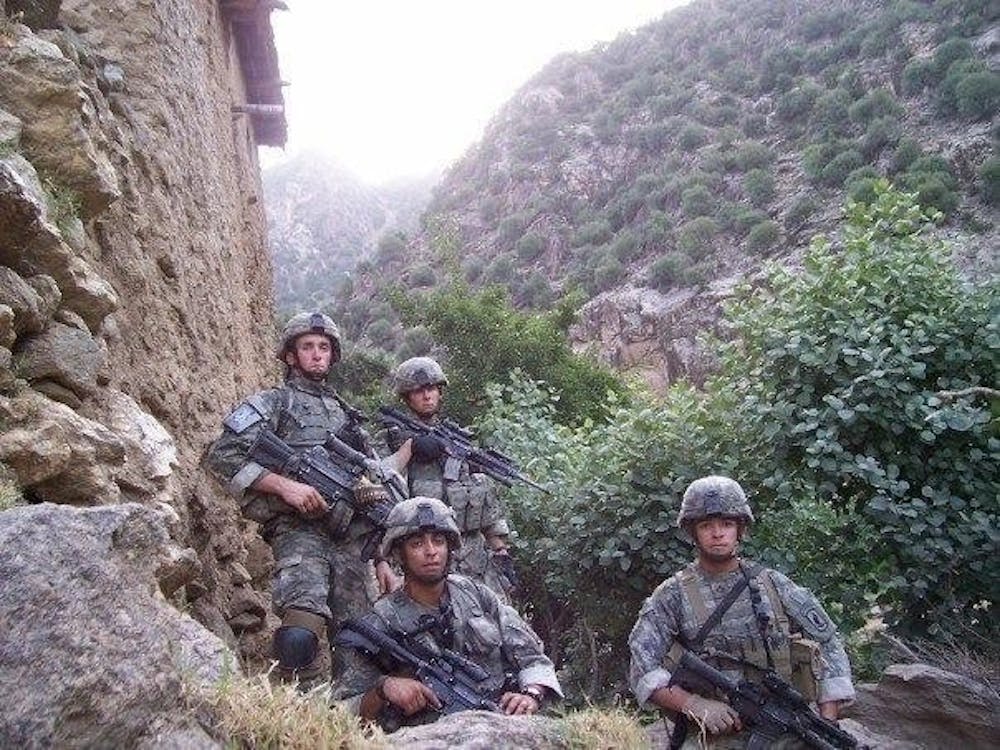A recent report revealed major differences between veteran and service member students and traditional students among undergraduates at four-year universities.
Released by the American Council on Education, the report revealed that on a national scale, veteran and service member students tended to be older and spend less time on campus than traditional students.
Student veterans and service members were more likely to report a positive relationship with faculty and administration than traditional students. However, they were slightly less likely to report friendly and supportive relationships with other students, a difference of about four percent.
Margaret Baechtold, director of Veteran Support Services,said she was not surprised at some of the statistics the report revealed.
“The vast majority of them do not live in the residence halls,” she said. “So it isn’t surprising, like other older students who have either other responsibilities or are living off campus, that the amount of time they spend on campus and the way they engage in campus-based activities is different than a traditional 18- to 22-year-old undergraduate student.”
The ACE report, titled Student Veterans/Service Members’ Engagement in College and University Life and Education, was based on data collected from 2009 to 2012 in a study called From Soldier to Student II.
It also included data from the 2012 National Survey of Student Engagement, an annual survey of undergraduate students at four-year universities in the U.S.
“Within our population of student veterans, a much higher percentage of them are married and have families than of the general student population,” Baechtold said.
“That in and of itself is absolutely going to impact the amount of time and interest they have in campus specific activities versus their own personal family commitments and potentially jobs they might hold while they’re in school.”
Anthony Arnold, second year law student at IU and Navy reservist, said he spends a great deal of time on campus, in contrast to the national results.
In addition to his role as president and founder of the IU chapter of Student Veterans of America, Arnold said he has stayed busy with law internships and other student organizations within the law school.
Arnold said a law student can be expected to spend a great deal of time on campus studying regardless of military or civilian status. However, he said he still makes time to hang out with friends and engage with other students.
“(SVA has) different workshops (to) help veterans, student veterans, meet their professional goals,” he said. “But then the other half of the organization is the social atmosphere. It’s getting to try and get veterans who don’t come out, don’t socialize, don’t integrate with the campus to attempt to do so.”
James Sutor, criminal justice undergraduate at IU and Army sergeant, said he also spends a lot of time on campus.
Aside from being a cadet for IUPD and helping with SVA events, Sutor said he makes an effort to socialize with friends every day.
According to the ACE report, student veterans’ and service members’ average age was 33 as compared to civilian students’ average age of 22.
At 27 and 29 respectively, Sutor and Arnold’s ages are close to the national average found in the report.
Arnold said because of different life experiences and priorities his fellow service members tended to spend more time studying than traditional students.
“For some veterans, we’ve lived in Japan, lived in Europe, we’ve traveled around the world, missing a Friday night isn’t that big of a deal,” Arnold said.
In November, the U.S. Department of Veterans Affairs announced that one million veterans, service members and family members benefited from the Post-9/11 GI Bill since 2009.
The results of “From Soldier to Student II” revealed support services on college campuses have increased as well.
IU has had support services for student veterans/service members since January 2007, Baechtold said. A recent report from the U.S. News and World Report ranked IU one of the top ten best universities in the country for student veterans and service members.
Only 46 percent of veteran/service member students in the report findings said they felt supported by administrative personnel.
Sutor, on the other hand, said the Veteran Support Services staff made his transition from Ivy Tech to IU easier when he transferred two semesters ago.
“It’s almost like, when you go there as a new student, they just basically hold your hand and, like, guide you through everything,” Sutor said.
Arnold also expressed a great deal of satisfaction with the VSS staff.
“I can’t speak more highly of the office,” he said. “They are an integral part of making sure that veterans are able to succeed here on campus.”
Study reveals veteran trends

Get stories like this in your inbox
Subscribe



